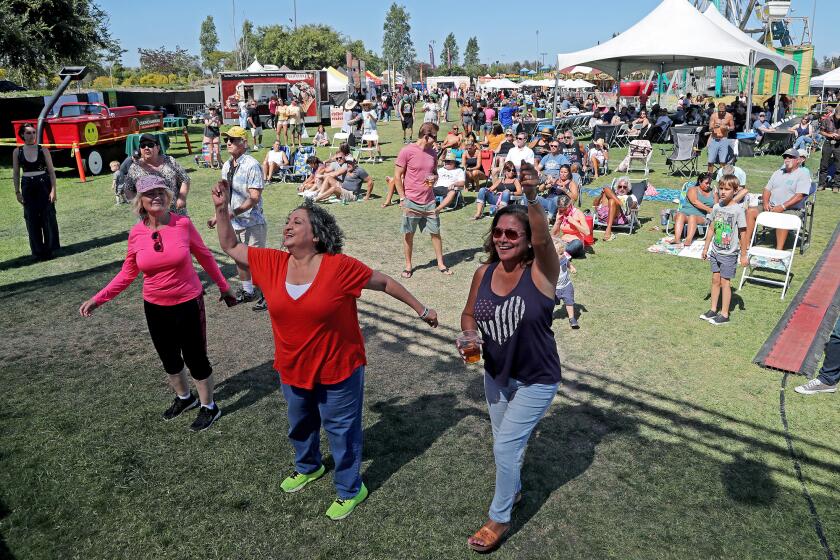Police pitch new solution to RV problem
- Share via
Lolita Harper
COSTA MESA -- City officials are working to please both sides of the
recreational vehicle debate by suggesting a parking permit system
designed to allow enough time to load and unload rigs, yet keep city
streets free of large vehicles on a regular basis.
In a memorandum to City Council members written Monday, Costa Mesa
Police Lt. Karl Schuler detailed a program that would employ large
florescent placards, allowing vehicles to be parked on city streets while
preparing for -- and unwinding from -- vacations.
Schuler said the placard program is just a suggestion and would still
require further review by the City Council and the city attorney’s
office. His proposal responds to resident criticism that 24 hours --
suggested in an earlier proposal -- was not enough time to get ready for
trips.
“I’m saying let’s be fair with these people and give them more time .
. . but at the same time address the underlying issue of having these
large vehicles on neighborhood streets, obstructing views, etc.,” Schuler
said.
On Jan. 7, council members postponed formal adoption of an ordinance
that banned large vehicles from parking on residential streets, with a
24-hour exception for loading and unloading only. After hearing from
about 45 people who oppose the proposed new law, the City Council
directed Schuler and the city attorney to look at other options and
return with a revised ordinance for the Feb. 4 meeting.
Schuler’s new proposal mandates recreational vehicle owners pick up a
bright 11-by-8.5-inch placard from the Police Department before going on
a trip. The permit -- which would be placed in the windshield of the
recreational vehicle -- would allow for 72 hours to load or unload and
would be marked accordingly by the police when issued, Schuler said.
One-week permits would also be available for visitors, the memo stated.
Any recreational vehicle without a placard would be in violation and
be cited, he said. Schuler added that the bright colors would make it
easily enforceable by passing officers.
Mayor Linda Dixon was optimistic about the suggestion.
“This could possibly be a solution that would satisfy everyone,” she
said.
Bill Folsom, a mechanic for the city who in large part led the
opposition to the ordinance, is not satisfied.
“There are a lot of ways to go to enforce the current law,” said
Folsom, who uses his recreational vehicle as his primary vehicle. “We
don’t need a new one.”
Folsom said the new proposal would require the city to post signs,
which could prove to be costly. Schuler confirmed that signs would have
to be posted at the city limits.
“That’s not something I would imagine the taxpayers want to pay for,”
Folsom said. “The best thing -- and the cheapest thing -- for the city to
do would be to give the police some new ways to enforce the current law.”
Folsom also touted electronic devices used in other cities that allow
law enforcers to monitor vehicles more easily. Aside from new laws and
gadgets, Folsom encouraged old- fashioned communication between
neighbors.
“I still think a lot of these issues can be resolved by people talking
to each other -- letting each other know what problems they may have,” he
said. “A little communication goes a long way.
* Lolita Harper covers Costa Mesa. She may be reached at (949)
574-4275 or by e-mail at o7 lolita.harper@latimes.comf7 .
All the latest on Orange County from Orange County.
Get our free TimesOC newsletter.
You may occasionally receive promotional content from the Daily Pilot.









